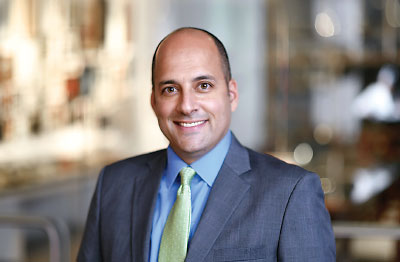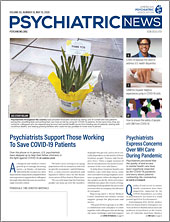As COVID-19 continues its spread, most Americans are adapting to a new normal that includes increased hand washing, actively thinking about not touching one’s face, and avoiding close physical contact with others. For some patients with obsessive-compulsive disorder (OCD), these are familiar practices.
For the mental health professionals who treat OCD patients, the COVID-19 pandemic has led to interesting questions: How are patients managing their symptoms in a time when ritual cleaning is encouraged? And, should therapists adjust their strategies in this unusual time?
“Interestingly, many of the patients in our clinic have not experienced worsening OCD symptoms during this crisis,” said Eric Storch, Ph.D., a professor and McIngvale Presidential Endowed Chair in the Menninger Department of Psychiatry and Behavioral Sciences at Baylor College of Medicine. “They may experience some stress and anxiety, but the levels are on par with the levels most people without OCD will exhibit,” he told Psychiatric News.
As Storch explained, OCD symptoms largely fall into four broad domains: contamination/cleaning obsessions and compulsions, intrusive thoughts related to taboo subjects (typically sex, religion, or harm), obsessions/compulsions with symmetry and order, and ritualized checking (for example, turning a door lock a certain number of times before going to bed each night).
“Even among people with contamination fears, it’s not always germaphobia; it’s whatever a patient perceives as excessively disgusting,” noted Allen Weg, Ed.D., a psychologist and director of Stress and Anxiety Services of New Jersey.
There are signs that some patients with OCD, whose anxiety revolves around germs and infection, are struggling with the COVID-19 outbreak, Weg continued. “I have had patients tell me that their worst fears have just been realized,” he said.
Storch added that patients exhibiting other OCD symptom types can also be affected by COVID-19. He described a patient with harm-related worries who believes he is an asymptomatic COVID-19 carrier, which has worsened the patient’s avoidance behaviors.
Working with OCD patients to modify their behaviors may be complicated by COVID-19. The cornerstone of OCD treatment is exposure and response prevention therapy, an approach in which patients confront their compulsions in a safe setting and then try not to conduct their typical ritualized response.
During the pandemic, Weg said he is being cautious about using direct exposure techniques, especially around hand washing or home cleaning rituals, with his patients. “It is somewhat risky for us to discourage these behaviors given the reality of this pandemic,” he said. “But we still can employ other principles of exposure therapy to help patients change their habits, while also managing general anxiety levels to prevent an exacerbation of symptoms.”
Weg said that the heart of exposure therapy is to have patients accept a lack of total control, which most can do in areas not involving their compulsion. An individual who may be afraid of any contact with germs has no concerns about slipping in the shower or falling downstairs, for example, which are both possible accidents but relatively improbable under normal circumstances.
“People with OCD mix up possibility and probability in relation to their obsession,” he said. “If we can get them to accept uncertainty, we can change their relationship with their object of fear and empower them.”
Storch also acknowledged that exposure therapy is complicated in the current times. “The goal of therapy is to expose a patient to an ordinary level of risk and show that it’s not dangerous,” he said. “Right now, though, the standard risk level is elevated and increasingly uncertain.” Still, he thinks there are ways for therapists to safely implement exposure techniques, so long as they raise the bar on what are considered normal cleanliness behaviors.
“It will be important to return to gold-standard exposure and response prevention therapy once the COVID-19 crisis resolves,” he added. “Do we risk diluting the effectiveness of exposure therapy if we keep the thresholds of normal behavior unnecessarily high after the risk returns to pre-COVID-19 levels?”
Both experts agreed that the COVID-19 pandemic has created one net positive for OCD therapy: increased tele-mental health services. “There are some factors, like closely reading body language, that are better face to face, but being able to talk to patients in their homes has opened up new aspects of treatment,” Storch said. “For one, we can engage with the patient’s family more successfully.”
“Telehealth also has an advantage in that the source of a person’s OCD stress is often in the home,” added Weg. “Now we can visibly see what patients are experiencing when they interact with their anxiety triggers, and we can better guide them through the therapeutic process.”
Weg said he is hopeful the pandemic leads to a greater understanding of people with OCD. “The average person now has gotten a small experience of life with OCD,” he said. “They live with elevated anxiety and repetitive thoughts about what they touched or if someone got too close to them.”
This pandemic will eventually subside, and routines will go back to normal for most people, Weg said, “but imagine if it didn’t. Having this routine go on for months or years is difficult and emotionally exhausting. Hopefully others can now have more awareness and empathy for these patients.” ■

